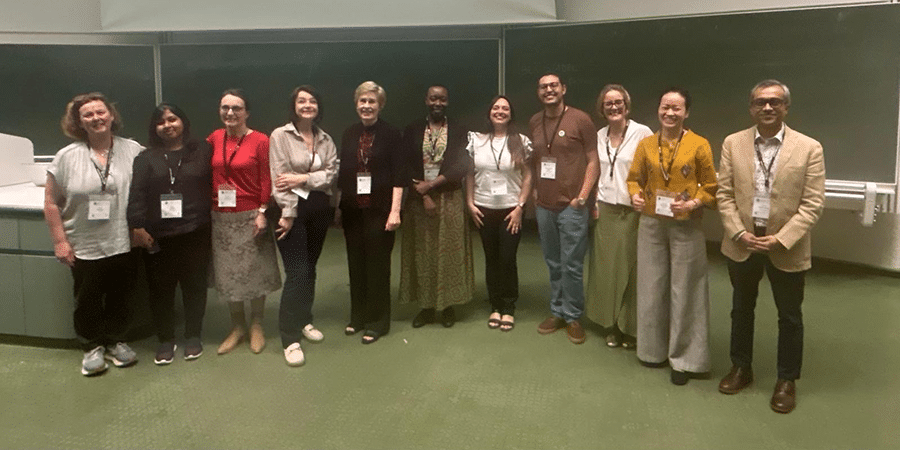
CPA’s Research Institute shared major contributions across the conference themes in early diagnosis, regenerative medicine, epidemiology, and assistive technology research – all shaped by lived experience. Our researchers presented at more than 50 talks, posters, and workshops, some are included in the highlights below.
Global CP Registers Workshop: CPA researchers joined global partners from over 40 countries to discuss progress in data collection, diagnosis, post-neonatal CP and genomics. Presentations from the Global Low- and Middle-Income CP Register GLM-CPR (Bangladesh, Brazil, Malawi, Thailand, South Africa) and New Zealand emphasised equitable care and community-based service delivery.
Assistive Technology: CPA researchers Dr Petra Karlsson and Mr Darryl Chiu presented talks on the use of leading technologies such as autonomous vehicles, car accessibility and eye-gaze technology for people with CP.
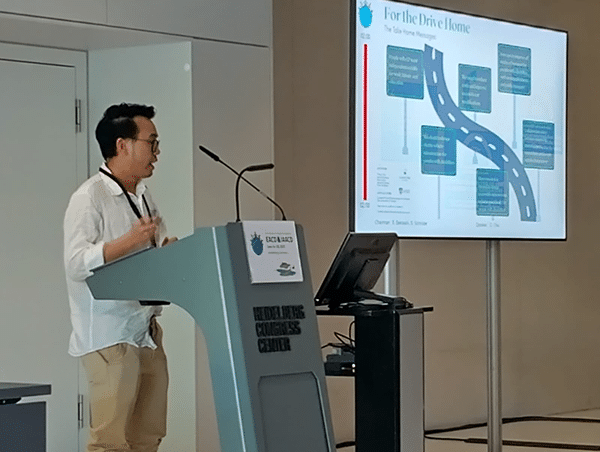
Early intervention in low-resource settings: Dr. Kath Benfer (University of Queensland) shared her team’s work on the LEAP program in India and First Nations communities, showing how early support delivered by peer workers leads to better outcomes for babies at risk of CP.
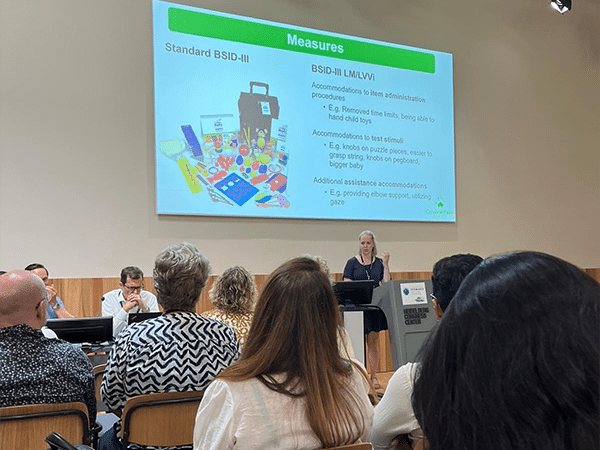
Cognition and CP: CPA’s Dr Ingrid Honan and Dr Petra Karlsson presented new insights on cognitive challenges in children with CP and tools to support earlier assessment and intervention, especially for those with high support needs.
Early detection advances: Research shared from CPA RI included predicting outcomes in infants with congenital anomalies using the General Movements Assessment Motor Optimality Score-Revised (MOS-R) (C.Crowle, M.Jackman, A.Webb, C,Morgan). Presentation by other researchers included Baby OSCAR which is a valid measure for early selective motor control in infants, and the ASDetect app to support earlier identification autism.
Cortical Visual Impairment (CVI): The forthcoming international clinical guidelines on CVI were previewed, highlighting the need for routine screening and practical strategies to help children with CVI use their vision more effectively.
Perinatal Stem cells: Prof Iona Novak presented a compelling case for the application of stem cells in cerebral palsy, which was supported by clinical research insights, and a case study by Prof Chrościńska-Krawczyk.
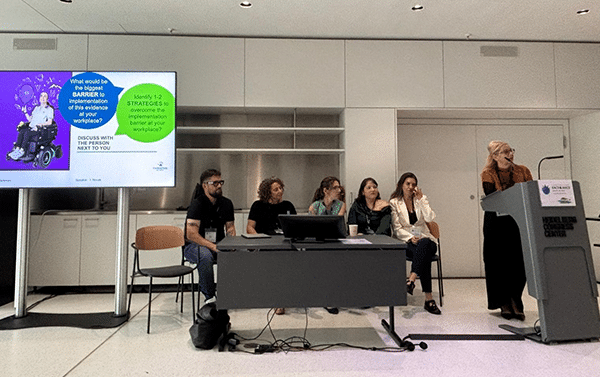
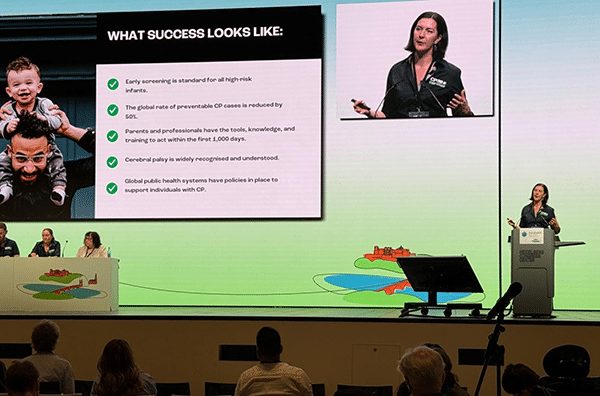
Global Influence and Social Impact: Bronya Metherall discussed the CP360 networks, and CP Advocate Kylie Facer gave talks on the partnerships and the parent perspectives on research.
Nearly 100 people with lived experience of disability attended the conference to share their ideas, including Australians supported by CPA. CPA funds research studies in many of these research areas, and support grassroots programs, particularly in low- and middle-income countries, helping to make a difference globally.
CPA was truly front and centre at the conference, showcasing important work in early diagnosis, early intervention, regenerative medicine, and accessible technology. Underpinning all aspects of this work is a commitment to helping families access the support they need as early as possible and ensuring fair access to healthcare and technology that can make everyday life easier. The conference was a powerful reminder that every breakthrough is driven by real people making a real impact. CPA is proud to be part of working towards that change.